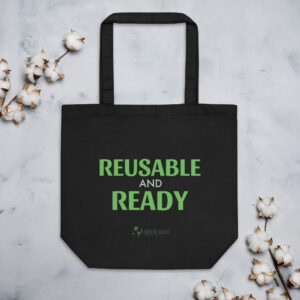Zero-waste living means using products that produce no waste.
Please don’t throw them away; reuse them or put them back into the earth (think composting).
But, you may have noticed that zero-waste products can be on the expensive side. But why?
Why are they more expensive?
Let’s take a look.
Why are zero-waste things so expensive?

Several factors contribute to zero-waste products being as expensive as they are. For instance, zero waste is a smaller market with smaller manufacturing batches, so it will naturally be more expensive.
Also, the product is more expensive because it is made better but will last longer.
The rest of the article will detail the factors surrounding zero waste, examples of zero waste, why zero waste is so expensive, and achieving zero waste.
-

Fashionably Green and On-The-Go
£16.50 Select options This product has multiple variants. The options may be chosen on the product page -

Reusable and Ready Eco-Friendly Tote Bag
£16.50 Add to cart
Which products are generally zero waste products?

Some examples of regular versus zero-waste products are:
| Regular | Zero-Waste Alternative |
|---|---|
| Plastic Straw | Metal straw |
| Plastic shopping bag | Reusable shopping bag |
| Plastic water bottle | Bamboo water bottle |
| Tampons | Menstrual cup |
| Disposable Diapers | Diapers |
| Paper towels | Cotton dishcloth |
What does zero-waste mean?
Zero waste is open to a bit of interpretation. However, generally, it means eliminating the purchase of products with no viable option for end-of-use management.
Avoiding one-time-use items is the goal.
Why do zero-waste products cost so much?

Zero-waste products are more expensive to produce because they use higher quality products to ensure you can reuse them instead of being immediately disposed of.
Zero-waste products are generally in less demand than alternatives. This leads to smaller production batches, thus, higher costs.
To recap:
- They are built to last
- Production is not large-scale enough to reduce costs
- Materials are more expensive
- There are fewer options (although this is growing)
Is zero-waste worth the extra cost?
For those considering the cost of disposal and recycling of non-zero waste products, zero waste may not be much more expensive.
Many people consider eliminating waste critical to a healthy planet in the future, so the extra cost is worth it.
Is the demand for zero-waste products increasing?
As people are becoming more concerned with the environmental costs of waste, the demand for zero waste is increasing.
There has also been an increasing awareness of these products in mainstream media.
Is there a way to have zero waste products on a budget?

You may spend more if you factor in the cost of purchasing non-zero waste products.
This is because zero-waste products are quality and will last, whereas non-zero waste will have to be replaced as it wears out.
How can I be zero waste?
Essential concepts in zero waste are reducing how much you consume, rethinking if you need the item, and, if possible, trying to purchase a zero-waste item.
Once you get in the habit of doing these things, it becomes second nature.
How do I raise awareness of zero-waste products?
The best way to raise awareness of zero-waste products is by example.
If you can show people that there are zero-waste alternatives available, these zero-waste alternatives are as good or even better than non-zero waste.
Is there a zero-waste certification?

There are several zero-waste certifications. Companies can apply and ensure they are aligned with the standards of a zero-waste facility.
They can then display that they have completed the zero waste certification.
What are some other options for less expensive zero-waste products?
You can reduce costs of zero waste if you buy in bulk, purchase products out of season, and purchase items from thrift stores.
All these options will help reduce the costs surrounding a zero-waste lifestyle.
What can I do at home to have less expensive zero-waste products?
People often make cleaning products that result in less expensive zero waste products.
It is easy to make laundry detergent; if you make a large batch, it can last a long time before you have to invest hours into making more.
Should I just buy certain zero-waste products since they are so expensive?
It’s best to start by purchasing zero-waste items that you think will be used often.
For example, purchase a reusable coffee mug if you are constantly drinking coffee and disposing of the cup. Another example is to buy dish clothes instead of using paper towels.
Can students and low-income people live a zero-waste lifestyle?

An essential concept of zero waste is to reduce it. Being careful in the consumer choices will give you more money to purchase quality zero-waste products.
These products will last longer, thus likely ending up costing less money in the long run.
My ancestors didn’t have to worry about zero waste, why should I?
In your ancestor’s day, products were not as heavily packaged as they are now. Nowadays, plastic is very inexpensive, thus making it a disposable product.
Your ancestors were likely more minimalistic in their purchasing, so they may have unintentionally followed a zero-waste philosophy.

